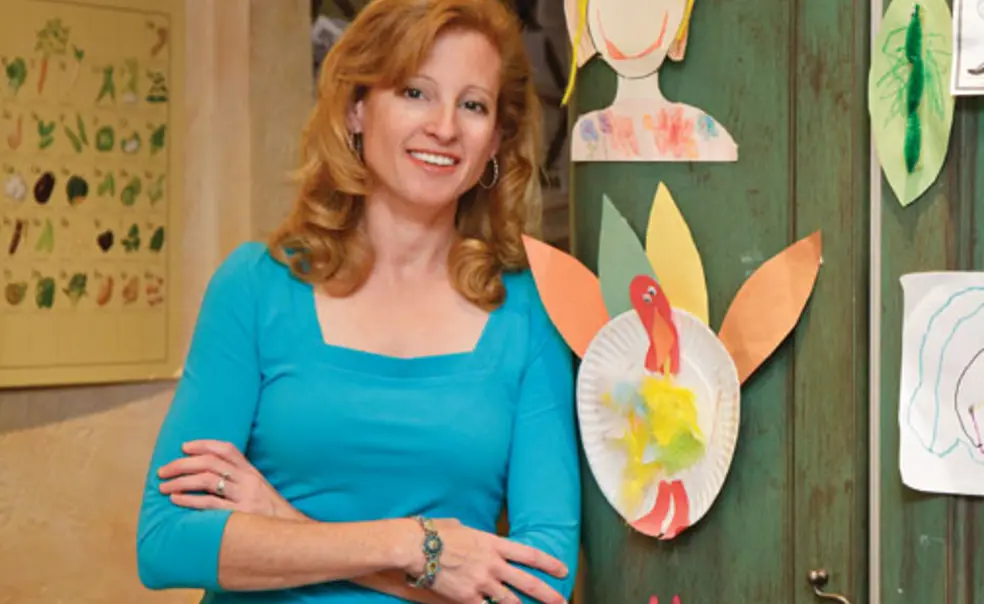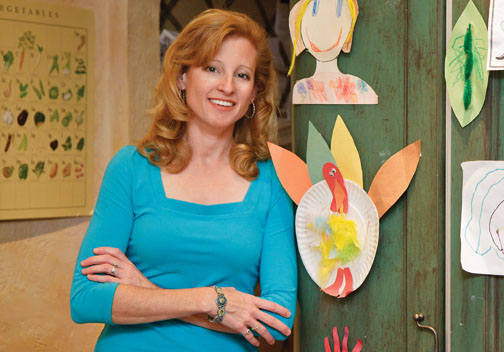Many parents read to their young children before tucking them into bed, but fewer add a math problem to the nighttime ritual. “We all know we should read to our kids at night, but math doesn’t have that same, equal footing,” says Laura Bilodeau Overdeck ’91. It does, however, in her house.
For the last six years, since their first child was 2, Overdeck and her husband have made up fun nighttime math problems — like how to calculate the number of chips in chocolate-chip cookies — that their children, now ages 9, 7, and 4, solve in their heads. “In our house, math is just a fun thing that’s a natural part of life,” says Overdeck. “We do math problems about zip lines and electric eels and ninjas.”
When her friends in Short Hills, N.J., heard that the Overdecks did this with their children, they suggested that she share the math problems with other families. So last February she emailed problems to about 20 families. The problems were so successful that at the end of the month, she launched the nonprofit Bedtime Math (bedtimemath.org), which posts math problems for young children on its website. Users also can sign up for daily emails or find the problems on Bedtime Math’s Facebook page.
Each night’s question has three versions for different skill levels — “wee ones,” “little kids,” and “big kids.”
Since Overdeck launched Bedtime Math in February, it has grown to nearly 20,000 users. Last summer more than 50 libraries in New Jersey handed out some 8,000 calendars alongside their summer reading-incentive programs so that children could put shiny gold stars on each day that they did a Bedtime Math problem. Overdeck is working on a book of Bedtime Math problems that is scheduled to be published next summer.
Bedtime Math also partnered with the Boys & Girls Clubs’ Jersey City chapter, whose participants did problems during the day last summer and were tested at the beginning and end of the program to see if it helped them stem the slide in math skills that typically occurs during the summer months. Seventy-two percent of the children improved their scores.
Overdeck, an astrophysics major who always has liked math — as a child she memorized perfect squares for fun — wants to change the culture around the subject.
“There are a lot of parents out there who either don’t like math or are outright nervous about it or scared of it,” she says. Her goal is to “get parents who can’t stand math to raise kids who love math.”
One mother of three boys told Overdeck that she found herself saying to her children at bedtime: “‘If you don’t brush your teeth now, you get no math.’” Says Overdeck, “If we can have that kind of culture, where math is a prize ... then we’ve really made an impact.”













No responses yet